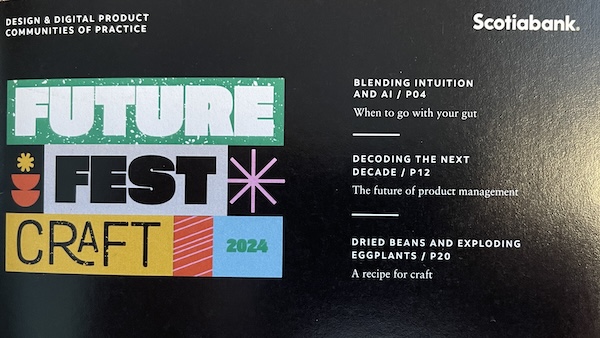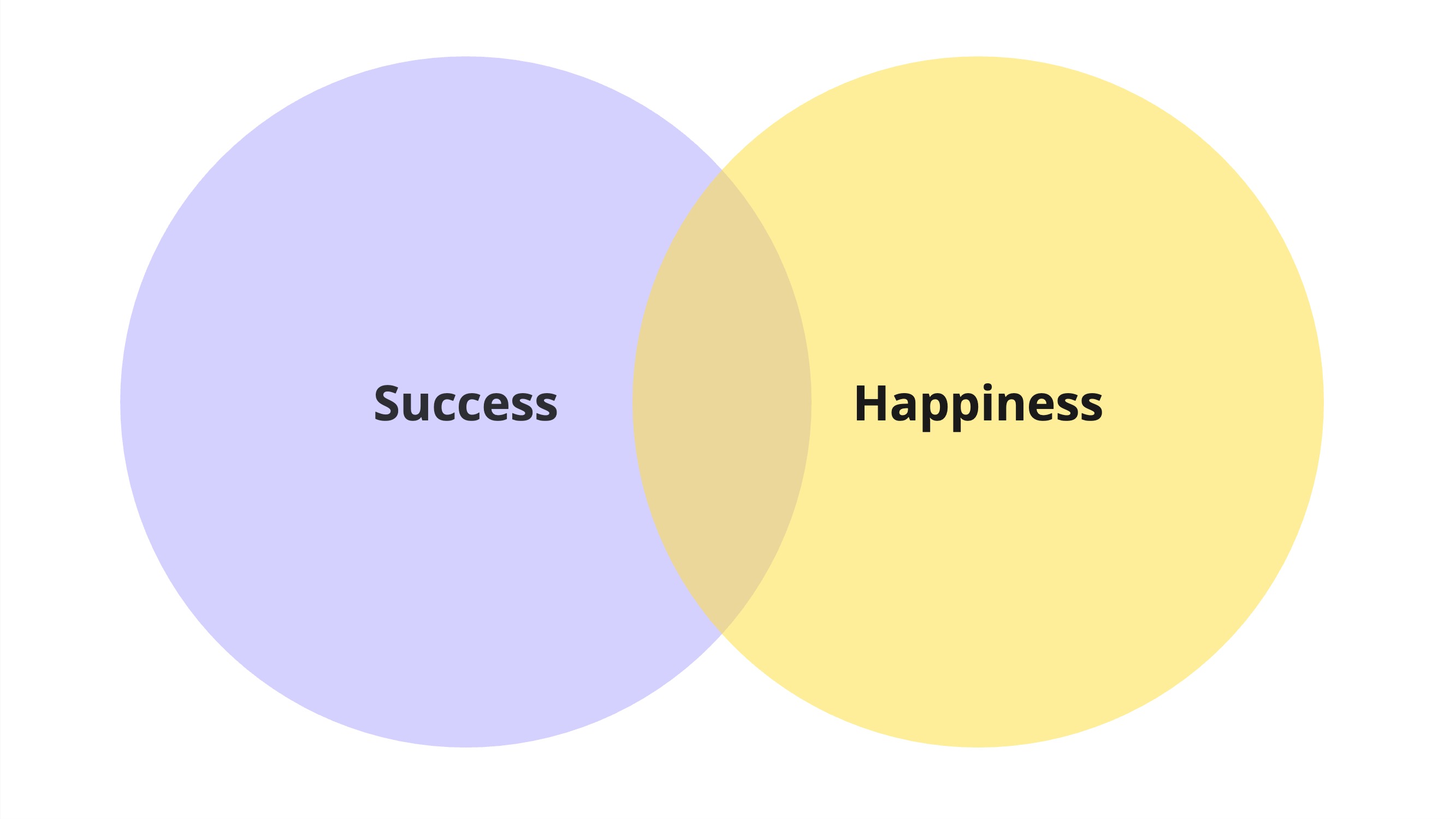
For the last several years, Scotia Digital’s Product and Design Communities of Practice have hosted the annual Future Fest Craft festival, a two-day conference focused on craft and innovation. I’ve been honored to present and participate in panel discussions on “Crafting the Future with AI” for the past two years. Last year, I explored what it takes to build AI-powered features, while this year, my co-host and I led a workshop on leveraging GenAI, specifically Microsoft Copilot, to boost PM productivity during discovery, ideation, and communication.
Along with the two-day festival, we also created a printed magazine this year. I was lucky enough to contribute to the first edition of the Future Fest Craft Magazine. Here is my article in full.
“Decoding the next decade: 6 ways the product manager role will change”
Product managers are the bridge between business goals, design vision, and technical feasibility. They define the product’s purpose (the “what” and “why”) and collaborate with their team to determine the “how” to make it a reality. Customer champions at heart, they understand user needs and translate them into valuable solutions that benefit both users and the company.
The craft of product management requires many different skills. Great product managers are powerful communicators with high emotional intelligence, allowing them to influence stakeholders and navigate complex situations. They are also experts in their domains, keeping a pulse on industry trends to make strategic investments that maximize product value.
They don’t just deliver features. They deliver impactful outcomes. Their focus is on prioritizing the right features to ensure the product solves real problems and creates significant value. It’s about shipping the right software, not just any software.
The future of product management
As we look to the future, we find ourselves in an era of rapid technological advancements, shifting consumer demands, and ever-increasing competition. The role of a product manager is poised for significant change in the next decade, driven by these advancements and evolving business landscapes.
Here are 6 ways the role of a product manager is going to change:
-
AI-powered assistance: Artificial intelligence (AI) will become a product manager’s collaborator. AI assistants like Microsoft’s Copilot or OpenAI’s ChatGPT will automate repetitive tasks like data analysis, competitor research, and generating user personas. This will free up time for product managers to focus on higher-level strategy and creative problem-solving.
-
Product managers get AI-savvy: You can expect AI capabilities to become the norm within software products. This trend will make machine learning (ML) developers an essential part of product development teams. For product managers to excel, a baseline understanding of ML concepts will be crucial, which include grasping how algorithms work, the probabilistic nature of AI-powered products, and the ethical implications of AI-powered product features.
-
Customer-centricity on steroids: The focus on customer-centricity will intensify. Product managers will need to become masters of user experience research and design thinking. Understanding user pain points, frustrations, and needs will be paramount to creating products that resonate deeply with customers.
-
The rise of the product visionary: In a world with ever-increasing competition and faster innovation cycles, product managers will need to be more visionary than ever. They’ll need to anticipate future trends, identify unmet customer needs, and translate them into a compelling product roadmap.
-
Collaboration across boundaries: The siloed approach to software development will fade away. Product managers will need to collaborate effectively with cross-functional teams like engineering, marketing, business, and sales. Strong communication and interpersonal skills will be of most importance for navigating diverse perspectives and achieving product goals.
-
Adaptability and lifelong learning: The pace of technological change will only accelerate. Product managers will need to be lifelong learners, constantly honing their skills and staying up to date about emerging technologies like AI, blockchain, quantum computing, and the Internet of Things.
The future holds exciting challenges and opportunities for product managers. Their role will continue to be indispensable, serving as the driving force behind successful product strategies, seamless customer experiences, and sustainable business growth.
A product manager’s focus on customer needs and strategic vision will become even more vital in the next decade.
Technological advancements like AI, changing customer expectations, and the need for cross-team collaboration will reshape the role. To succeed, product managers must become adept at using AI tools, understanding ML concepts, mastering customer-centric design, developing compelling visions, collaborating across teams, and embracing adaptability and lifelong learning.
Let’s embrace the future, combining our experience with a relentless drive for innovation and excellence to develop and ship great products to customers.
What change are you most excited to embrace as a product manager?




Comments